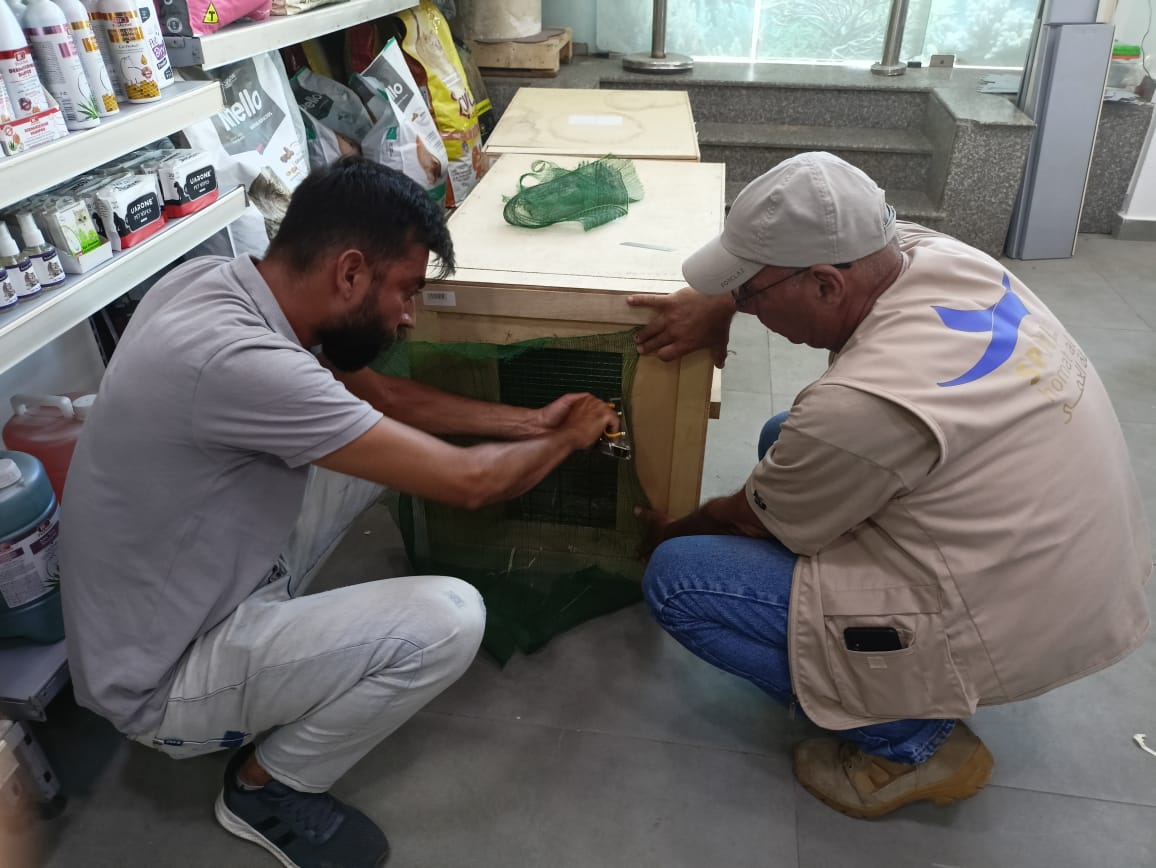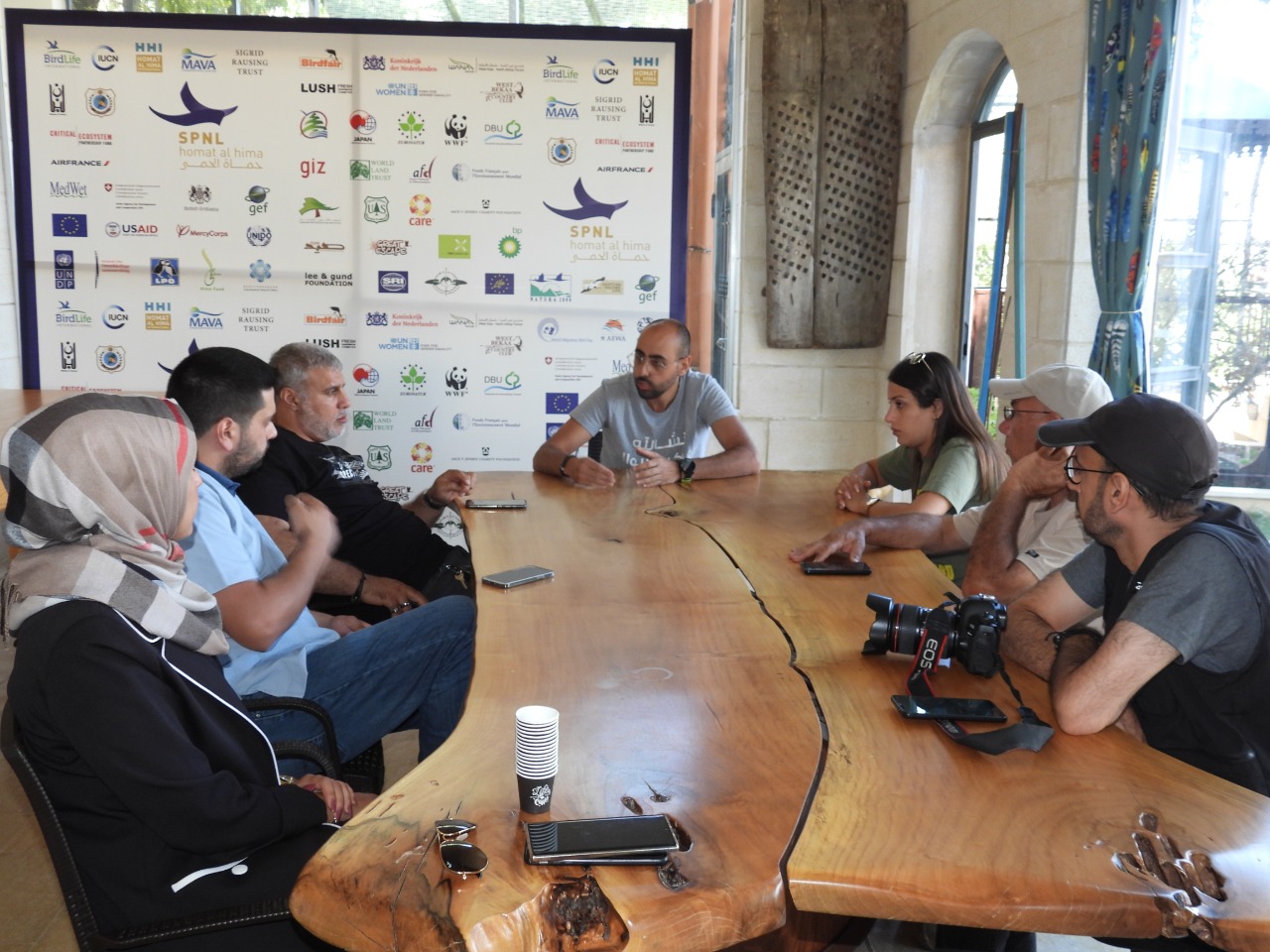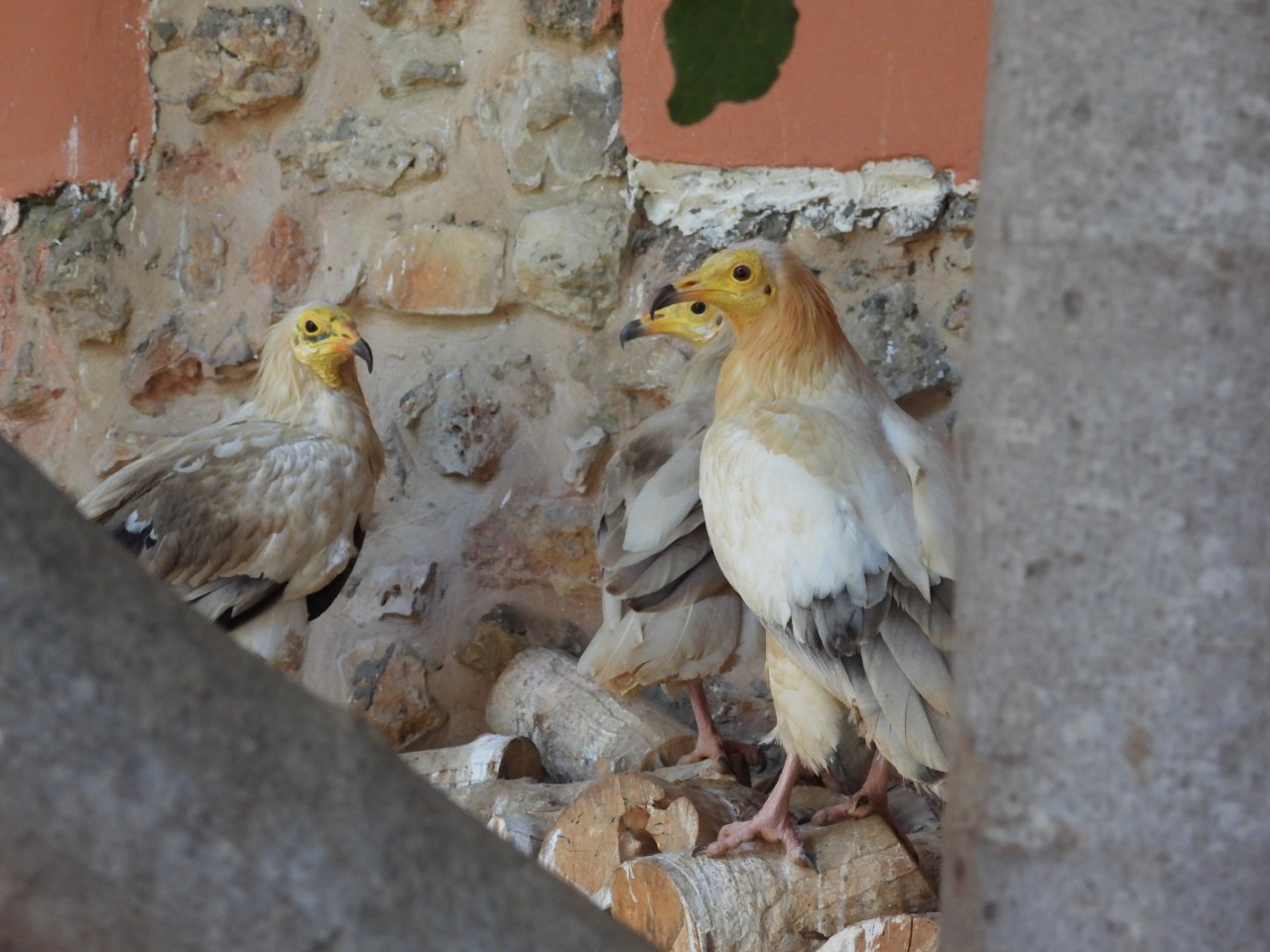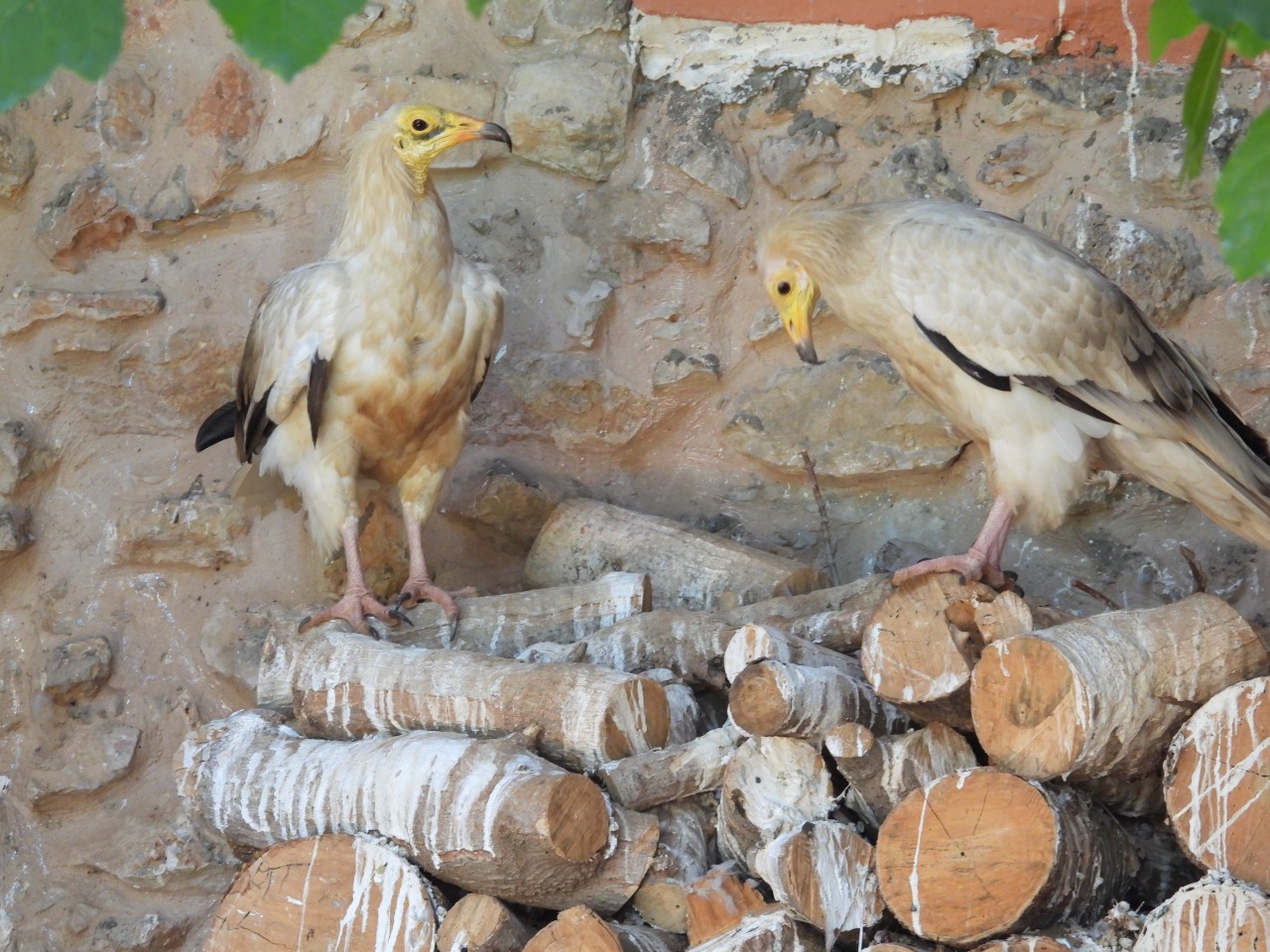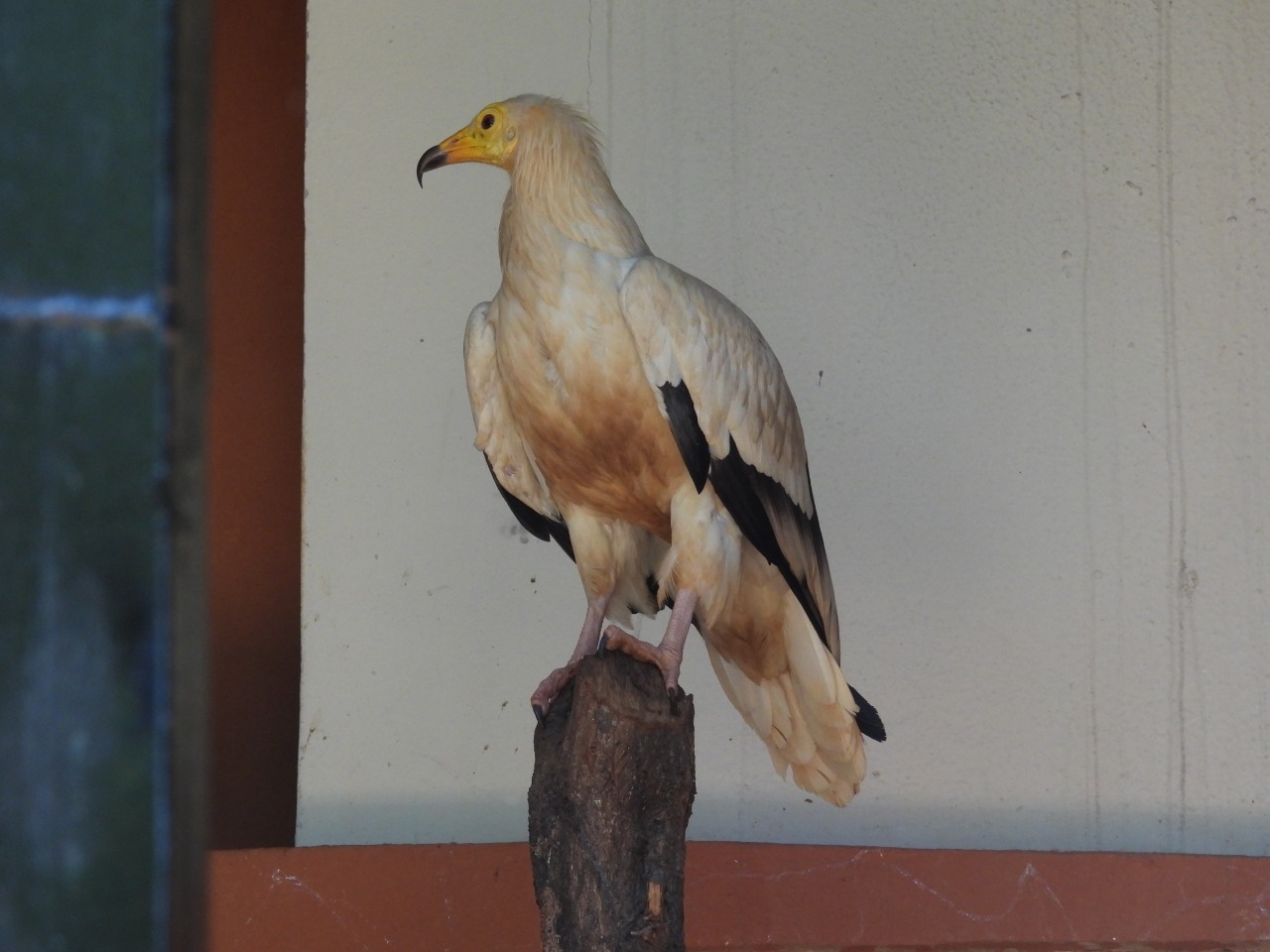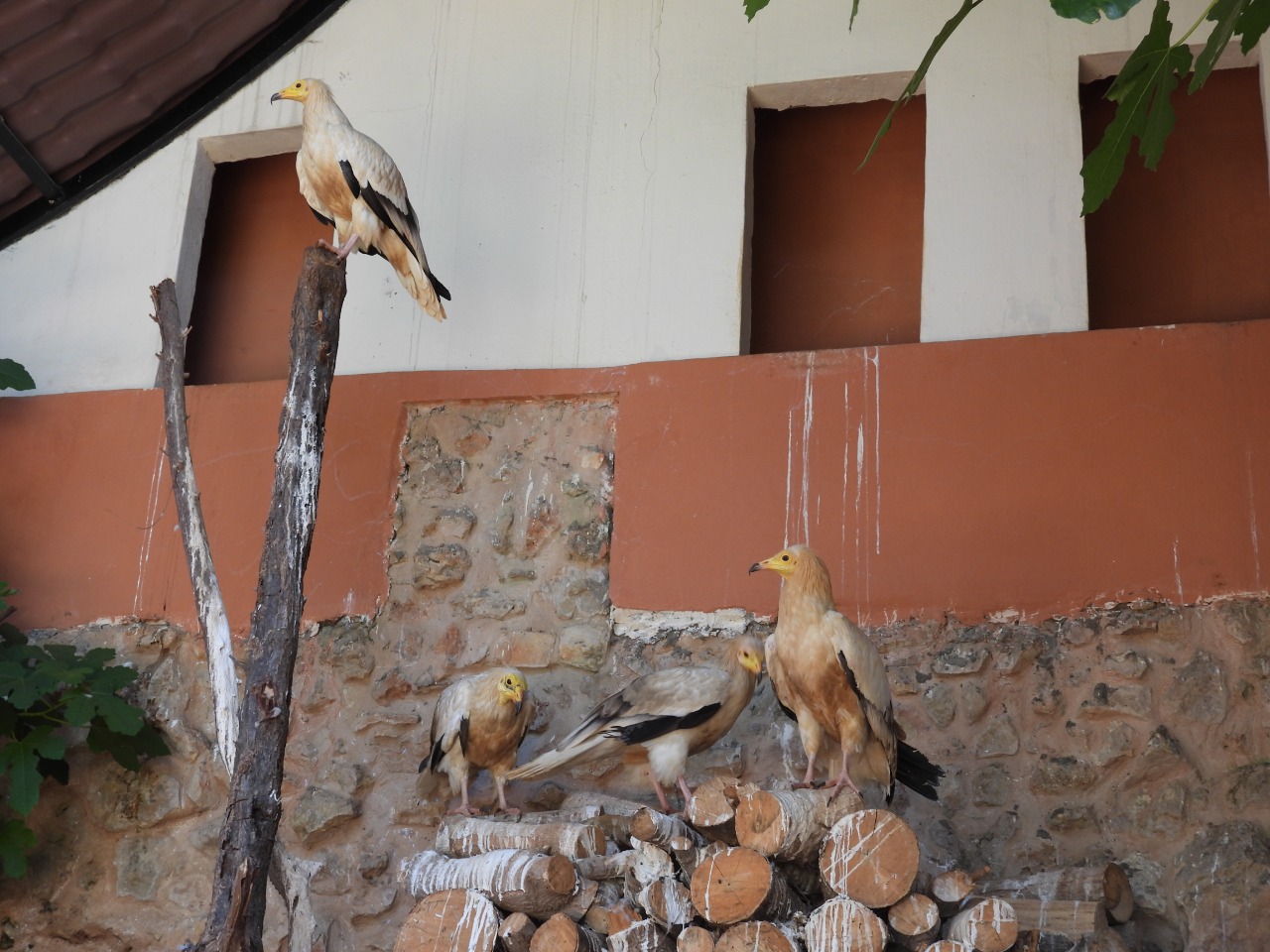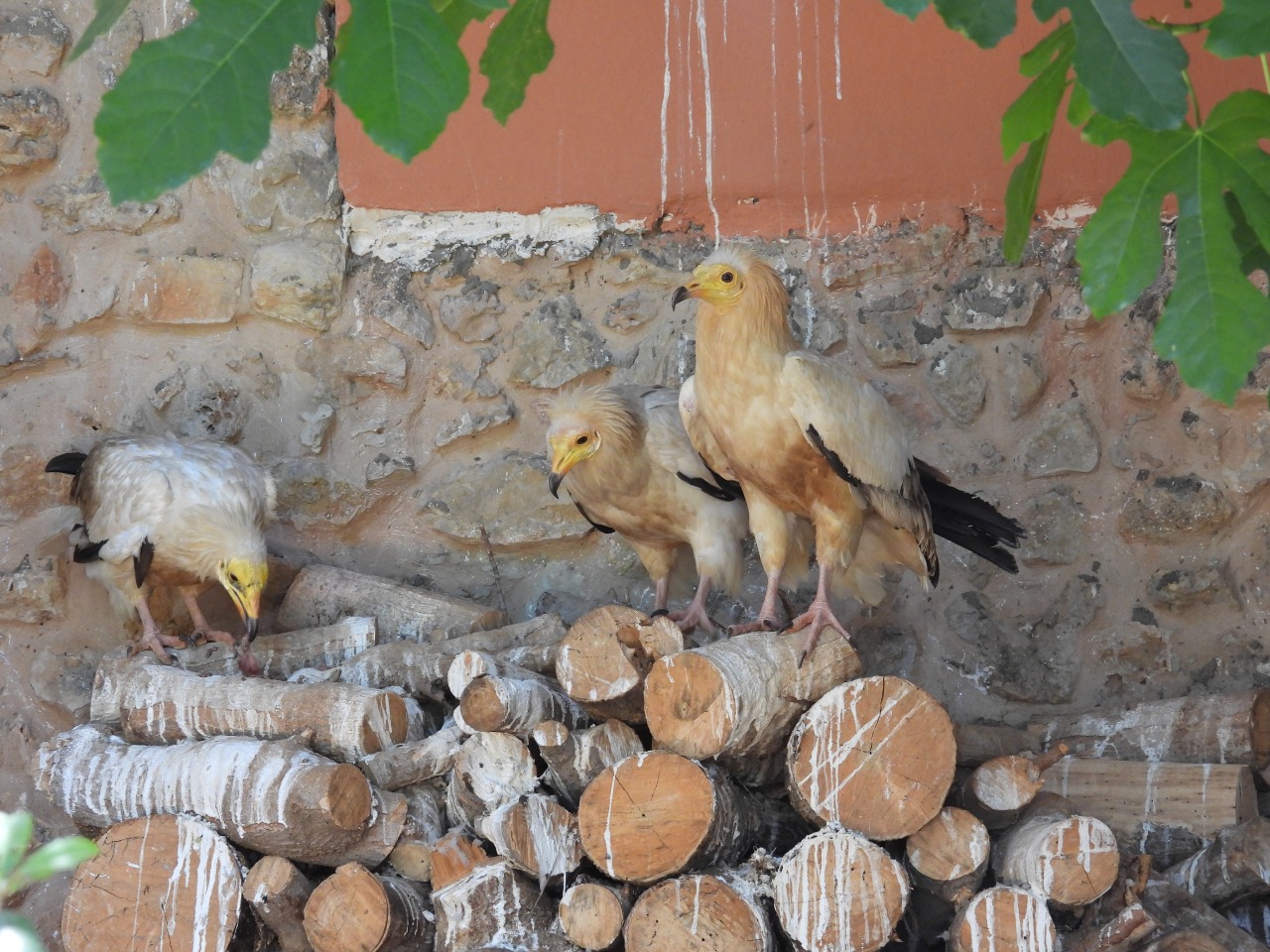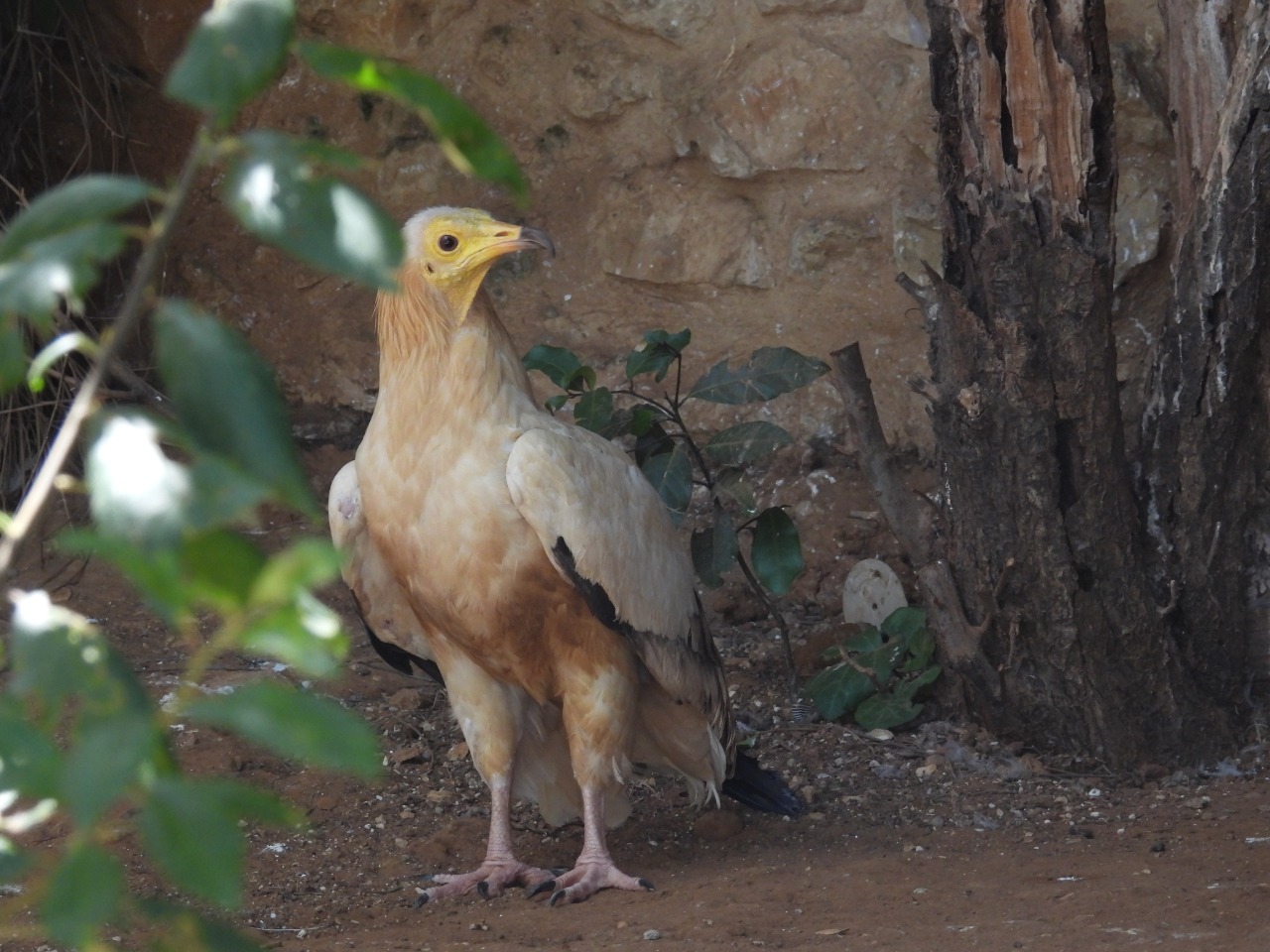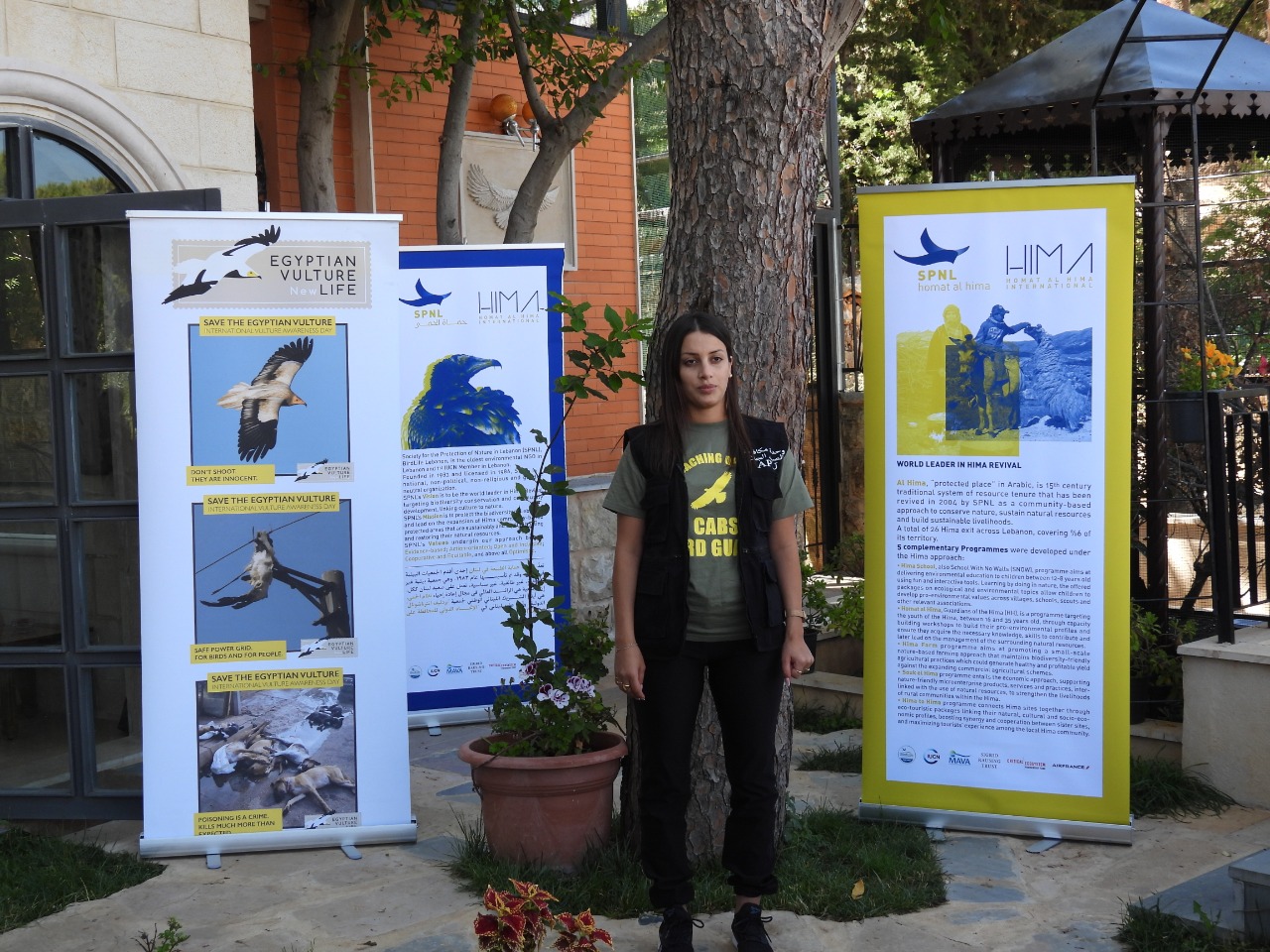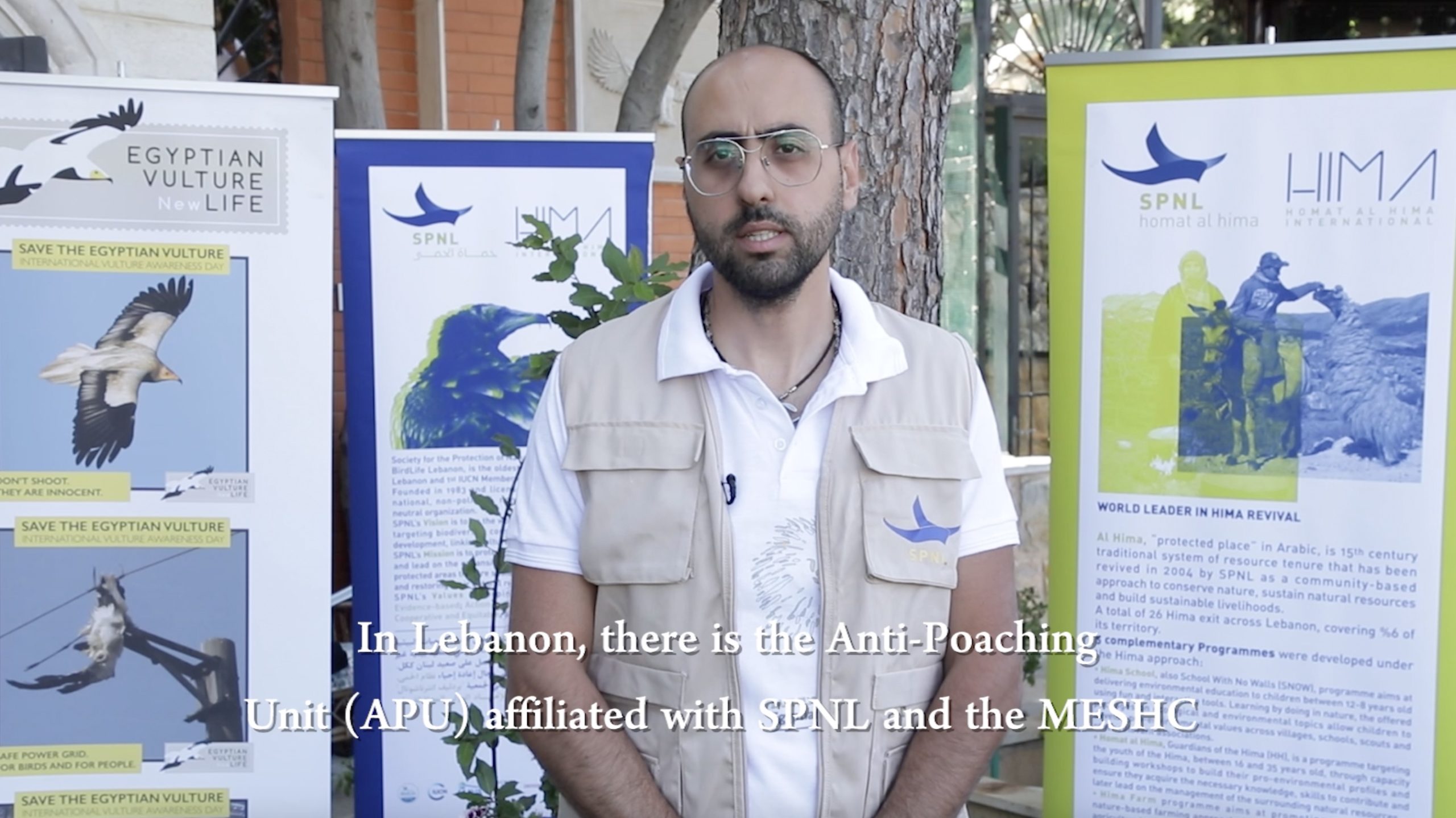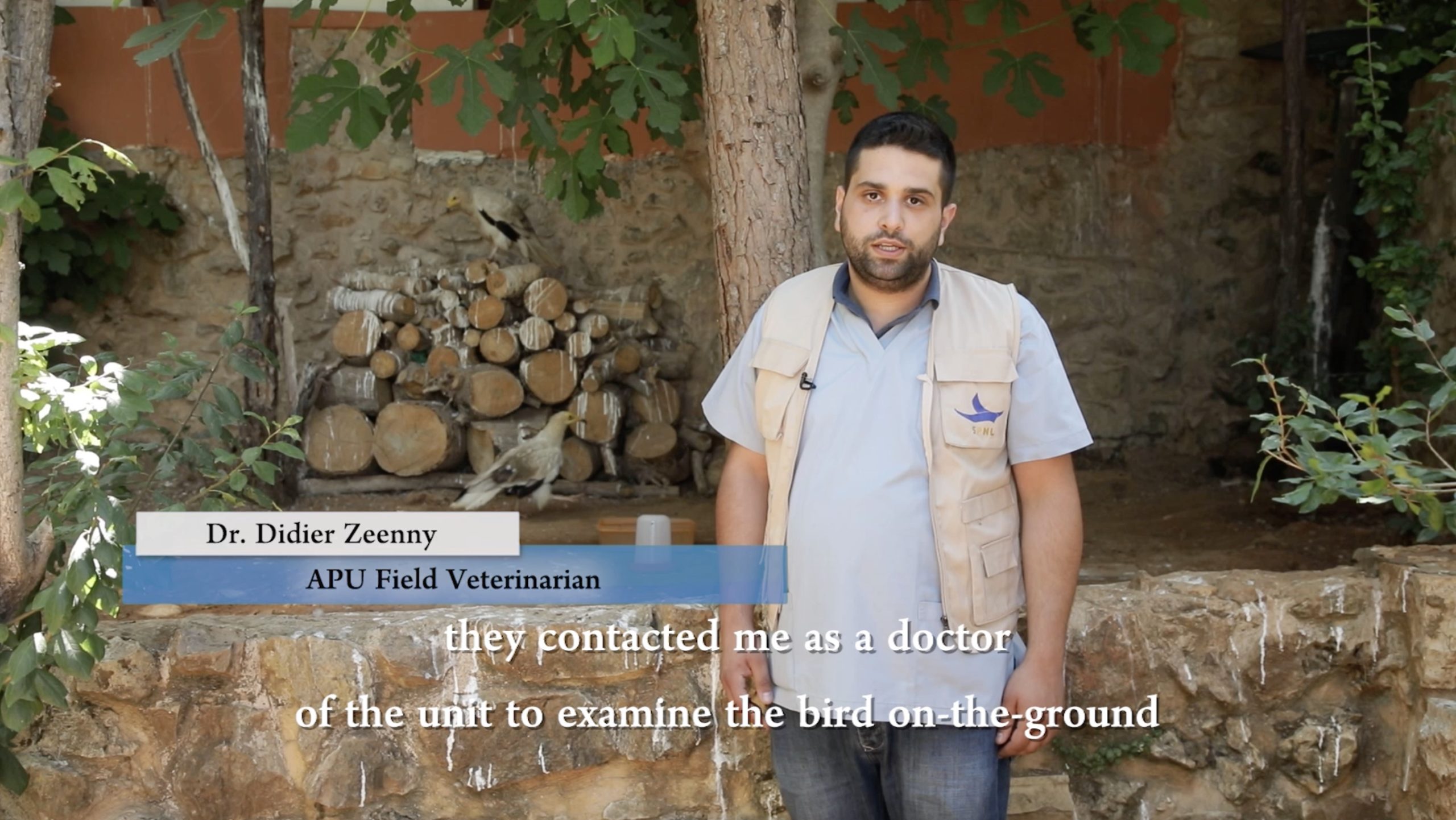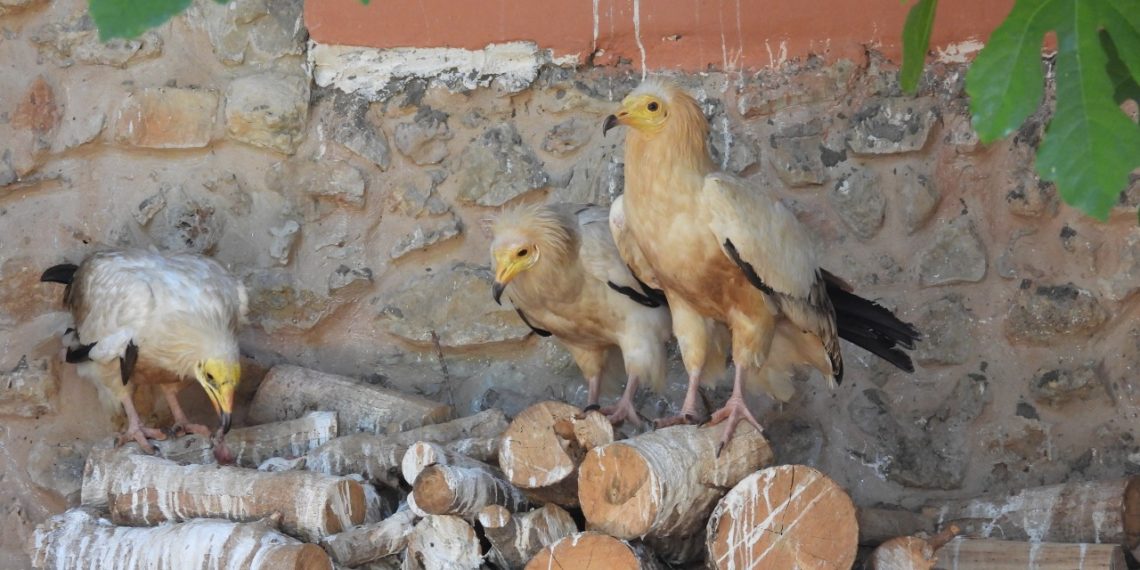
Egyptian Vultures… International Travels with a twist
Back on September 27, 2021 the APU were able to rescue 3 Egyptian Vultures held in an illegal farm. The story of these 3 magnificent species has just started. These birds were checked and placed within the Luc Hoffman Hima Home rehabilitation center, to properly monitor their diet and behavior. In December, and during the international #CalltoEarth Day held by CNN, “Louis” was released alongside UNIFIL in the most Southern point in Lebanon, being Naqoura, given it good health status, where it began its journey south along its flyway. Whereas the remaining 2 EVs were kept under close monitoring. One was named “Claudine Aoun”, after the name of the daughter of the President of the Republic of Lebanon, and President of the National Commission for Lebanese Women, and a great advocate for biodiversity and sustainability, believing in the message of peace birds bring; the second bird was named “Joseph Mousallem” after Colonel Joseph Mousallem, Head of ISF Public Relations Division, where hand-in-hand with SPNL, a more constructive enforcement of the hunting law was being done on a nationwide. Today these 2 birds are symbol of triumph and beacon of hope for the future, they embark on another exciting journey, as they are being introduced to the breeding program in Prague Zoo, Czech Republic. Such International efforts between Bulgarian, Lebanese and Czech is another shining star in the face of illegal persecution and killing of birds. SPNL would like to thank the EV NewLIFE project, funded by the EU, for their on-going efforts in supporting the inputs being done to preserve such a species along its flyway, within 14 countries.
#EgyptianvultureNewLIFE
Shirine Bou Raffoul
APU Director/CABS Lebanon Office
After receiving a call from an informant from one of the most dangerous areas in Lebanon to inform us about the existence of three endangered birds, the Anti-Poaching Unit (APU) moved with the International Organization CABS and one of SPNL members with the support of the Internal Security Forces, Lebanese State Security and the Military Intelligence to rescue these birds.
The mission was extremely dangerous and hard, but the unit managed to rescue the birds and brought them back to our center in Keyfoun, where the responsible field veterinarian of the unit examined the birds.
One of the birds was set free since it was ready to fly; it is finally back to its original habitat.
After treating the other two birds in our rehab center, they are now ready to be sent to another rehab center in Czech Republic.
Louis Junior Saad
Egyptian Vulture Project Manager/Rehabilitation Center Manager
Within the EV New Life Project funded by the European Union (EU), Lebanon is playing a major role since 2019 and to this day to protect this bird during its migration season, autumn and spring.
In Lebanon, there is the Anti-Poaching Unit (APU) affiliated with SPNL and the MESHC, which was able to rescue 6 birds from illegal farms within two years.
The first bird “Anahita” was successfully transported in January 2022, to Czech Republic where it was included in a breeding program.
Two more birds will join this program soon and they were named “Claudine Aoun” and “Colonel Joseph Mousallem” since these people played a vital role with SPNL to help applying the new Lebanese hunting law nationwide.
Today we are at an SPNL rehab center in Keyfoun, where we take care of these birds and other bird species as well, in order to either transport them and include them in new breeding programs abroad or to set them free in their initial habitats.
Dr. Didier Zeenny
APU Field Veterinarian
After the APU accomplished its mission, they contacted me as a doctor of the unit to examine the bird on-the-ground before taking them to the veterinary clinic to perform X-Ray images on the wings and the body to ensure that none of the bones are broken and there are no pellets so we can ensure this bird a safe return to the wildlife.
We brought the bird to Keyfoun center to supervise its diet and provide a stable environment, so they can be transported safely to their natural habitats abroad.
